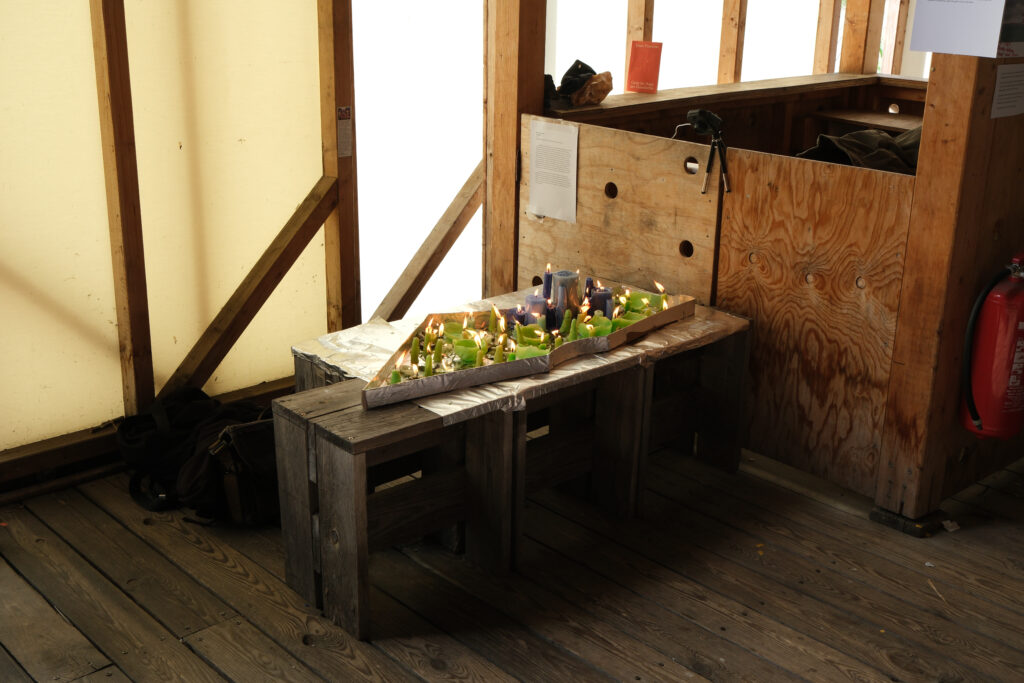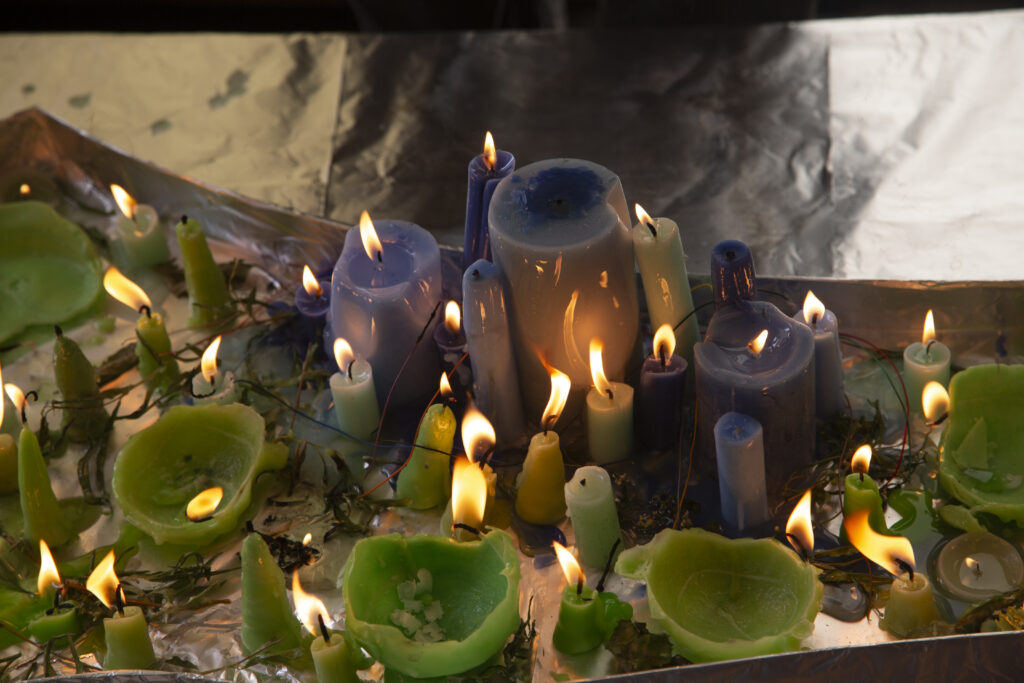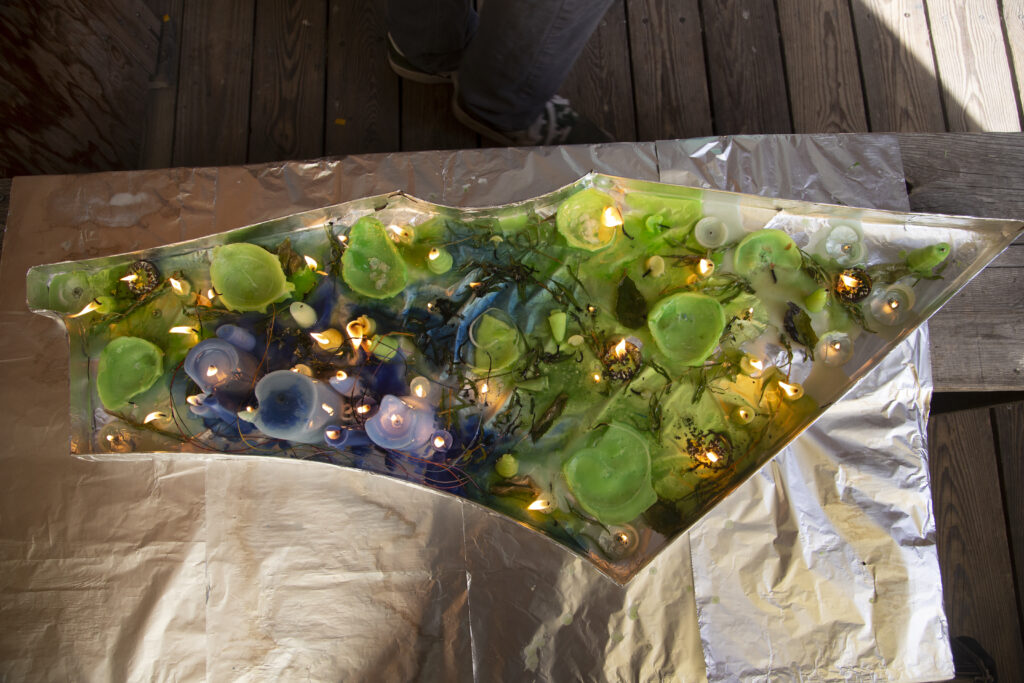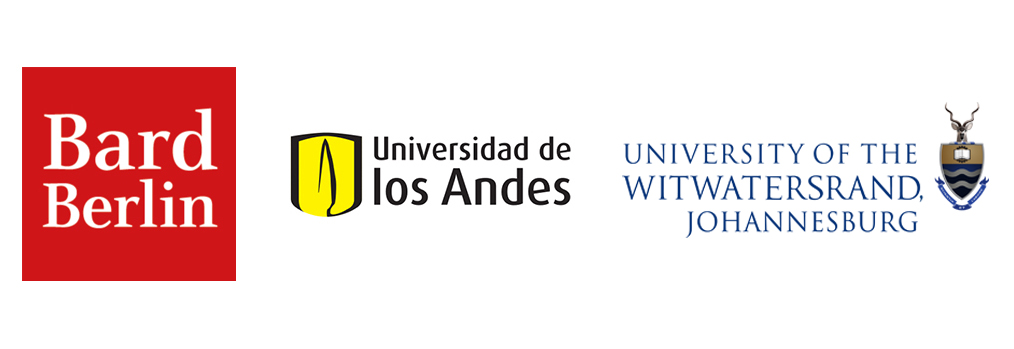Mosely O’Donnell
Land Melt
2025, Bard College Berlin
Mixed media installation: cardboard, wax, plastic, wires, leaves. 100cm x 30cm
At the end of the 19th century, the Ottoman Empire began to impose new land ownership laws on the people of modern-day Palestine that enforced land registration, increased taxes and the risks of losing land to the Sultan. At the time, the farmers mostly operated in the Musha’a land sharing system, a communal plan that divided and rotated the land among the families of the community. As the Ottoman Empire was fading, a large amount of land was sold to zionist projects. These small villages eventually privatized themselves and brought with them new forms of agricultural technology, philosophies, and most devastatingly, a capitalist market supported by funding that the Fellahin could not compete against. Palestinian agriculture continued to operate to its highest ability, cultivating as much land as was possible (contrary to the popular sentiment that Israel “made the desert bloom”), and was a major exporter of citrus up until the Nakba of 1948.
This assemblage represents the existence, resources, and outcomes of agricultural practices threatened by the imposed capitalist system in Palestine. A fundamentally communal agricultural livelihood continuously dispossessed for centuries eventually becomes lost to an encroaching imperialist economy. Despite colonial forces trying to drive the Palestinians away from their land, the people will always keep the traces of those who once tended to her, and their memory will never be erased.




